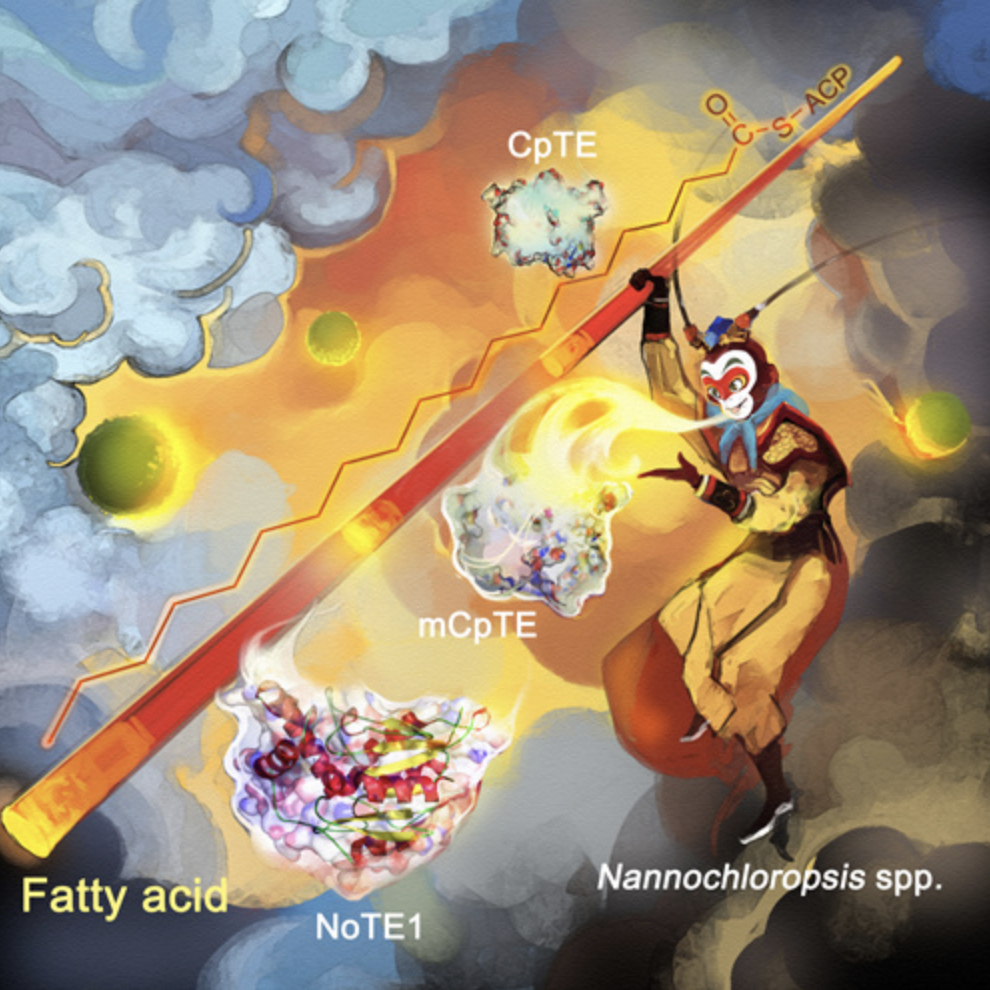A team led by WANG Qintao of Qingdao Energy Institute QIBEBT and FENG Yanbin at Dalian University of Technology used both metabolic and protein engineering to adjust at will the fatty acid chain length in the oil-producing microalgae Nannochloropsis oceanica along the following strategy: a cytoplasmic acyl-ACP thioesterase (NoTE1) of this organism increased the content of C16 and C18 in algal triglycerides when overproduced, and reduced the content of C20 when knocked-out. If substituted by an acyl-ACP thioesterase (CpTE) from Cuphea palustris through methods of synthetic biology, the chain-length of oil changed to C8 and C10. Using rational enzyme engineering on CpTE, its substrate preference could be further changed to C12. Further experiments confirmed that mutants of Nannochloropsis oceanica containing the new engineered enzyme (mCpTE) had a greatly increased C12 content.
The authors symbolize these results in a cartoon where “monkey king”, a powerful figure in Chinese mythology, uses his magic wand to determine the chain length of triglyceride fatty acids.
CAS news release April 19, 20121
Qintao WANG et al, https://doi.org/10.1016/j.ymben.2021.03.015


